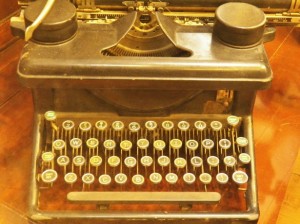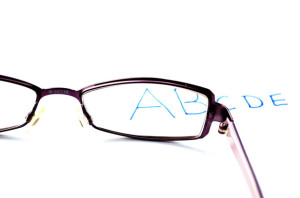There comes a stage in writing, when an author wants, needs, would benefit from having someone else read their work. Having someone who is not attached to the writing, read it with fresh eyes and then offer feedback can be invaluable. Of course, this can be challenging too, but this is usually the stage when the author, the writing needs to be challenged in order to develop, to improve.
Here’s how it goes for me:
 I have an idea for a piece, I write as much as I can about the idea – the seed of a story. I take time to research whatever I think necessary to flesh the story out, bring the story depth or move the story on. Then I write some more, often discovering more to the story than I originally had planned. Reading my story aloud to someone at this point can be useful – not for their feedback necessarily, but to hear the flow of the story, when the rhythm falters or the punctuation just doesn’t quite work, when the dialogue is forced or I have slipped into the wrong tense. I usually fix these things mid-reading, which can be very frustrating to my patient listener (who, for this task, is one of my nearest and dearest). I might be offered some indications of areas needing clarity or things that don’t work, even new possible directions for the story – but this reading is very selfish, I’m not so interested in the listener’s thoughts as much as I am in hearing the story. Sure, I could simply read it aloud to myself, but there is something about having someone there listening that helps me hear things more clearly, like they bring a focus to the act.
I have an idea for a piece, I write as much as I can about the idea – the seed of a story. I take time to research whatever I think necessary to flesh the story out, bring the story depth or move the story on. Then I write some more, often discovering more to the story than I originally had planned. Reading my story aloud to someone at this point can be useful – not for their feedback necessarily, but to hear the flow of the story, when the rhythm falters or the punctuation just doesn’t quite work, when the dialogue is forced or I have slipped into the wrong tense. I usually fix these things mid-reading, which can be very frustrating to my patient listener (who, for this task, is one of my nearest and dearest). I might be offered some indications of areas needing clarity or things that don’t work, even new possible directions for the story – but this reading is very selfish, I’m not so interested in the listener’s thoughts as much as I am in hearing the story. Sure, I could simply read it aloud to myself, but there is something about having someone there listening that helps me hear things more clearly, like they bring a focus to the act.
This usually results in some fixing, that leads to a bit more writing. Then when I have done all I can, I let it rest. I need to detach from the writing a little, to find a bit of perspective from a distance that I don’t get when I’m in the midst of the writing itself. This is also the perfect time to have others read the work with the aim of offering critical, constructive feedback.
Critical partners can be difficult to find. People closest to you are usually too emotionally invested in your life to give you an unbiased opinion, plus they just may not know how to give you the feedback you require. It is no easy thing to read a work and not only find and explain the strengths and weaknesses, but comment on how the writer might improve the work. Having professionally critiqued a number of manuscripts over the years, I know just how time consuming and detailed this work can be, and while I have studied and built these skills up over time, and thoroughly enjoy this kind of work, many people just don’t have the skills needed.
I have been lucky, throughout my under-graduate and post-graduate studies, I gathered a group of writers who were interested in writing and critiquing other’s work. We were all learning together, we were all in the same boat. This helped ease any anxieties we had about giving and receiving feedback and allowed us to get it wrong at times. I have also been involved in a number of writing groups, finding these the perfect place to read and critique others’ work and have my own critiqued also.
 Fellow writers are often better at critiquing that other people because they understand the technicalities of writing, of story. But people are busy, time limited things, so finding someone prepared to and able to critique a whole manuscript can be difficult.
Fellow writers are often better at critiquing that other people because they understand the technicalities of writing, of story. But people are busy, time limited things, so finding someone prepared to and able to critique a whole manuscript can be difficult.
I have also been involved in a number of reading groups and book clubs. Readers who like to reflect on what they read, the consider what they liked/disliked and why, who ponder aspects of the writing that a reader for pleasure might overlook. So reading/book group readers also make good critiquers of your writing.
But, if you don’t have access to anyone with the necessary skills to critique your work, what do you do? The answer can lie in educating your readers in how to provide you the critique you need. You can do this by developing questions for the reader to address through the critiquing process.
In my next blog, I will include a list of possible critique questions.
Photo credit: Typewriter
Photo credit: Glasses



